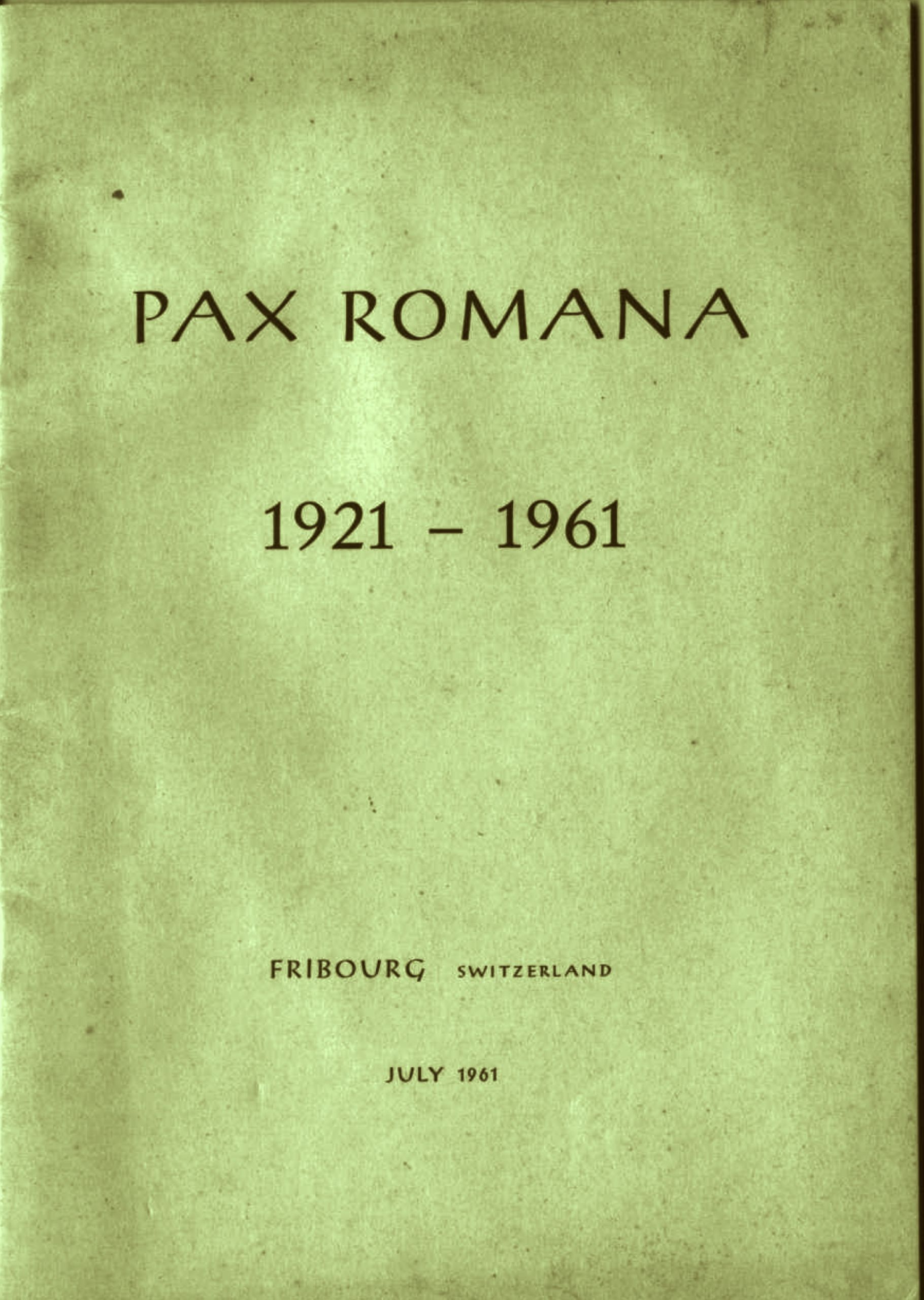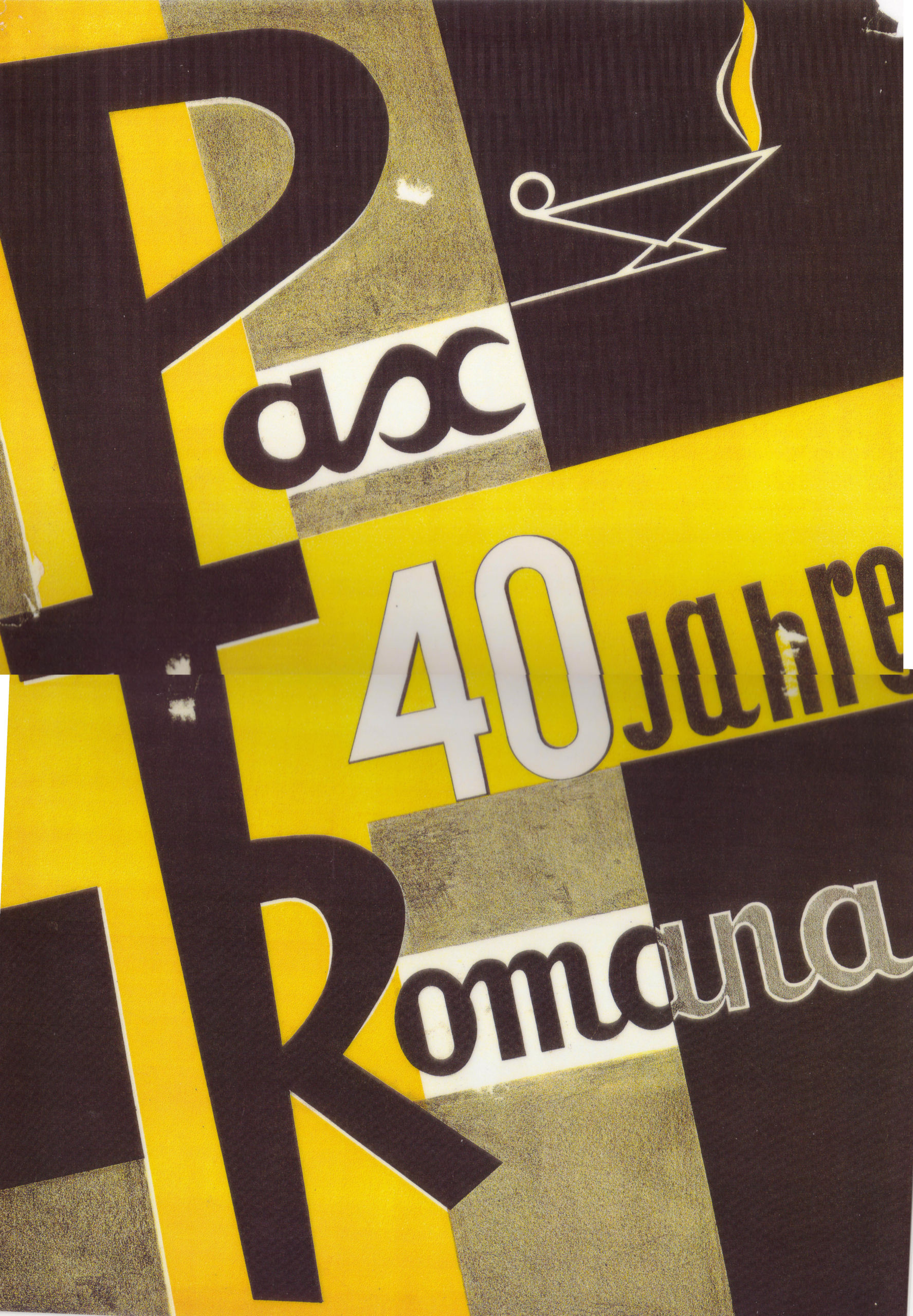Deceased with nearly 100 years, Ramon Sugranyes de Franch was a pillar of Pax Romana and one of the founders of the Pax Romana ICMICA-MIIC. His personal history throws a light on his convictions and his action, convictions and actions which do not cease to inspire Pax Romana.
Born in a place close to Barcelona in 1911, Ramon studied Law and literatures, and had been engaged in the movement of the catholic students during the Spanish Republic (1930-1936). Partisan of the innovative teaching ideas, he worked at the same time as a collaborator for various newspapers. At the beginning of civil war (1936-1939), this enthusiastic catholic is opposed to the spirit of crusade which animates many bishops and Spanish Catholics. Ramon decided to exile in France where he was actively involved with the Committees for civil and religious peace, with Maritain and other intellectuals (Salvador de Madariaga). During the World War II, he takes refuge in Switzerland where he accompanied the cardinal Vidal I Barraquer – the principal representative of the Church opposed to the military uprising of the general Franco.
He passed his thesis and continues his studies on Ramon Llull, great Catalan theologian of the Middle Age, a precursor of the inter-religious dialogue. Ramon taught the Iberian studies until his retirement in Freiburg (Swiss) where then the international secretariat of Pax Romana was based.
Ramon contributed to the creation of the International Movement of the Catholic Intellectuals (ICMICA-MIIC) of Pax Romana, of which, a student branch already exist (the IMCS),first as General Secretary of creation from 1947 to 1961, and then as the International President during ten years in the 60s.
During these years, there were many friendships built through the activities of the ICMICA-MIIC s such as the philosopher Jacques Maritain, the theologian and future cardinal Journet, the prelate of the Roman Curia Montini – the future pope Paul VI -, Italian intellectual Vittorino Veronese – future director of the UNESCO – , Spanish intellectual Joaquin Ruiz – Gimenez who played an important role for the democratic transition of Spain, the Portuguese Marias de Lourdes Pintassilgo – who became the first Prime Minister of Portugal during the transition from Military regime, Chilean Eduardo Frei – the president of Chile before S. Allende -, Polish Tadeusz Mazowiecki – Prime Minister for the Polish transition – .
As representative of Pax Romana, he became the President of the Conference of the ICOs (International Catholic Organizations) in the 60’s. Lay Observer to the Vatican Council II (1962-65), he has contributed to the evolution of the Church to open herself to the world and to lay people: he was a member of the Pontifical Council of Laity during the first mandate, where he sat at the sides of the archbishop Karol Józef Wojtyla who became the Pope Jean Paul II in 1978!
After these mandates, Ramon chaired International Institute of Jacques Maritain established in Venezia, which plays a great role for the diffusion of this integral humanism and this concern of openness which characterized the spirit of the Vatican Council II.
Attached to the University of Freiburg which offered him a refuge, symbol of science and study during the troubled years, which is also the birthplace of Pax Romana, Ramon always maintained a close link with his native Catalonia where he spent his holidays and where he died. In 1998, he published his memory in Catalan: “Militant for Justice – Militant per justícia” (Barcelona, Proa Edition).
We could meditate on this difficult destiny: when the course of history seems to force to choose one camp against the other. Is there a place for a way that respects the truth and the dignity of all? Which is the way to travel to prepare the transitions, at intellectual, cultural and political level, when storm ceased and we have to build the new world?
We can thank God for the work accomplished by Ramon Sugranyes de Franch



Leave A Comment
You must be logged in to post a comment.